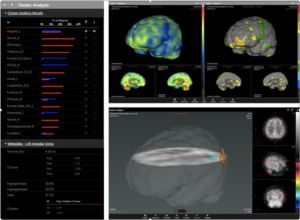There has been a lot of discussion about Pres. Trump’s first budget submission, particularly in healthcare channels, leading to more questions than answers. Will Medicaid really be cut by billions of dollars? Are certain research programs and pharmaceutical regulations destined for the scrap heap? Will the CDC and NIH have their budgets slashed? The list goes on.
There is an excellent article in The Atlantic that provides insight into the impact of the budget on healthcare, much of which is negative for many of us in the sector. Instead of reviewing the downside, I want to focus on the opportunities and trend away from simply piling on regarding the issue the proposed budget cuts will create. These opportunities arise from having to make difficult choices based on fewer resources available to address specific challenges. It may sound counter-intuitive, but those choices over diminished fund allocations can actually lead to dramatic advancement of research in health and diagnostics.
How?
The traditional path to innovation in healthcare is for researchers to receive money from the government and other sources, develop a solution to a specific medical challenge, seek approval from governmental bodies and then endeavor to commercialize the pharmaceutical device or process. The creative way to bring innovations to market is to secure private sector funding, then compliant testing and ultimately commercialization. This new approach is obtainable because technology has advanced to the point where data can be shared across boundaries. This sharing accelerates innovations that are works of collaboration between many different companies and organizations. This is exactly what investors want in a business model, and has been successfully used in many industries.
The healthcare sector has operated with a margin of error that can now be reduced by deploying the latest in information systems technologies. These new advancements enhance an organization’s ability to move new products and procedures through to commercialization more effectively. Data analytics is a great example of technology that has consistently been advancing to the point where stakeholders can fully coordinate intelligent information to better understand the needs of each patient. These stakeholders can realistically implement artificial intelligence, machine learning and other analytic technologies to fill the void and continue to be proactive in helping drive that more comprehensive view of the patient.
This research to personalize the care process is more important than ever because any potential cuts at the federal level will require more efficient use of treatment resources. If doctors can combine data sources at the point of care delivery to more precisely and immediately diagnose and treat illnesses, they can potentially save billions of dollars a year for the healthcare system.
As Harvard Business School’s Clayton Christiansen has said, machine learning is going to happen in a big way in the healthcare provider channel whether the channel likes it or not. The change will happen either through disruptive innovation, a process by which a product or service takes root initially in simple applications at the bottom of a market and then relentlessly moves up market, or through a more gradual evolution that is spurred on by existing stakeholders responding to the changing marketplace. Given those potential budget cuts, stakeholders should plan for disruptions but innovation that will be positive for the healthcare industry.
John A. Kelley, Jr., is Chairman and CEO of CereScan, a functional brain diagnostics company headquartered in Denver.




